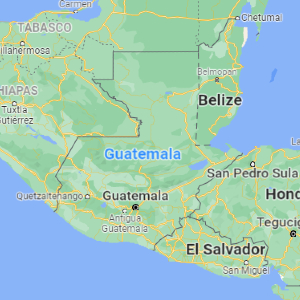
-
Agriculture

Project Name:Strengthening the Control of Huanglongbing (HLB) and the Implementation of Integrated Pest Management (IPM) in Citrus Project (Regional)
Project status:Completed projects
Cooperating Country:Caribbean, Central America, Dominican Republic, Belize, El Salvador, Guatemala
Project Description:With the citrus industry representing an important economic pillar in Central American countries, this project will aim to develop prevention and control capabilities for Huanglongbing (HLB), also known as citrus greening disease, in five countries affected by the disease (the Dominican Republic, Guatemala, Belize, Honduras and Nicaragua), as well as work to prevent the spread of HLB to two non-infected countries (El Salvador and Panama). HLB poses a grave threat to the region’s citrus industry, and could result in huge losses of production output in a sector worth an estimated US$1 billion if not effectively prevented and treated. Taiwan’s extensive experience in preventing HLB has led the International Regional Organisation for Plant and Animal Health (OIRSA) to seek out the TaiwanICDF’s assistance, and the two sides subsequently signed a memorandum for this Strengthening the Control of Huanglongbing (HLB) and the Implementation of Integrated Pest Management (IPM) in Citrus Project, which will look to safeguard the quality and yields of citrus fruits being grown in each of the project countries.
In enhancing the prevention and control of HLB, the main components of this project will include: (1) replacing HLB-infected plants from stocks of healthy seedlings; (2) implementing integrated pest control measures in citrus cultivation areas; (3) enhancing HLB detection methods; and (4) establishing an HLB monitoring and reporting system to facilitate a rapid response to any outbreaks of the disease.
Specific project work components will include: (1) establishing a seedling nursery and stem tip grafting laboratory for the production of healthy grafts of citrus fruits; (2) organizing workshops and implementing an IPM model so as to enhance public awareness regarding the prevention of HLB; (3) strengthening capacity to identify symptoms and perform PCR detection; (4) establishing Asian citrus psyllid traps and buffer zones for monitoring the epidemic.
To watch the video made by the TaiwanICDF: Saving the Citrus
Saving the Citrus 2: To the Rescue with Healthy Plants
Salvando A Los Cítricos
Salvando a los Cítricos 2: Al Rescate con Plantas Sanas
Region:Caribbean, Central America
Implementation Start Date:2012-12-11
Implementation End Date:2017-12-10
Project Objectives:
The objectives of this project are to:
- Develop the capacity of beneficiary countries to produce citrus genetic material which is healthy, affordable and of high quality.
- Encourage producers to adopt effective technologies suited to the integrated management of HLB and other pests of economic importance.
- Strengthen the technical capacity of beneficiary countries for HLB diagnosis using the latest technologies.
- Strengthen the surveillance and prevention of HLB in pest-free countries and/or pest-free areas.
Executing Agency:
- TaiwanICDF
- International Regional Organisation for Plant and Animal Health (OIRSA)
Project Performance:
- In each of the beneficiary countries, 100 percent of HLB-infected citrus plants will be replaced by healthy seedlings.
- In each of the beneficiary countries, IPM technologies will be adopted across 25 percent of areas used for citrus production.
- Training on diagnosis will be provided to personnel in each beneficiary country, raising capacity to 50 percent.
- Surveillance and reporting systems will be established in pest-free countries (El Salvador and Panama) and/or pest-free areas.
- Update:2023-03-27
- Hits:1749
